Protein Overload – What is it and How do you Fix It?
This post may contain affiliate links, and I will earn a commission if you purchase through these links. Please read the disclosure policy for more details.
Are you wondering if you’re suffering from protein overload? Did you do a protein treatment or use protein heavy products and now your hair isn’t happy?
You may be surprised to learn that protein overload isn’t actually a thing. That’s right! What many believe to be protein overload is actually a moisture deficiency. Regardless of what it’s called, it’s an easy fix. Read on to find out the truth about protein overload and how to fix your hair woes.
Prefer video content? Watch the YouTube video The Truth About Protein Overload – Protein Overload Recovery.
Look up the top treatments at any salon, and you’ll see protein treatments or keratin treatments first at any salon. This makes most people think it’s the best treatment, right?
It can be, but it’s not for everyone. There’s such a thing as too much protein and if you don’t know how to use it, you could be a victim too.
If your curls just aren’t acting like they used to and they feel dry, brittle, stiff, frizzy, and difficult to manage, you may be suffering from what many people like to call protein overload (but is actually just a moisture deficiency). Many people don’t even realize they overdid it or they felt like their hair needed it so they did it.
Fortunately, there are ways to fix it. Here’s what you must know.
Proteins and your Hair – What you Must Know
Your hair is mostly protein. You know it as keratin, which is a specific protein. Keratin is necessary to keep your hair looking beautiful and strong. But life happens and we style our hair a lot, all of which causes damage to the hair cuticle. Hair products, heat, and the environment all do damage to our hair, causing a loss in keratin.
When you have cuticle damage, your hair gets weak, brittle, and dry. That’s not good, but there’s such a thing as moisture deficiency (protein overload) too. Just like anything in life, too much of a good thing can turn bad.
When you have too much protein (not enough moisture), your hair starts acting up. You may not notice it at first, you’ll just think you’re having a bad hair day. But if it gets bad enough, you could have damage that if you don’t reverse, won’t allow you to have a ‘good curl’ day again. Your hair will feel frizzy, dry, and just downright difficult.
If you need more of the basics about protein and curly hair, read Protein Treatments For Curly Hair – A Guide To Protein Moisture Balance and come back.
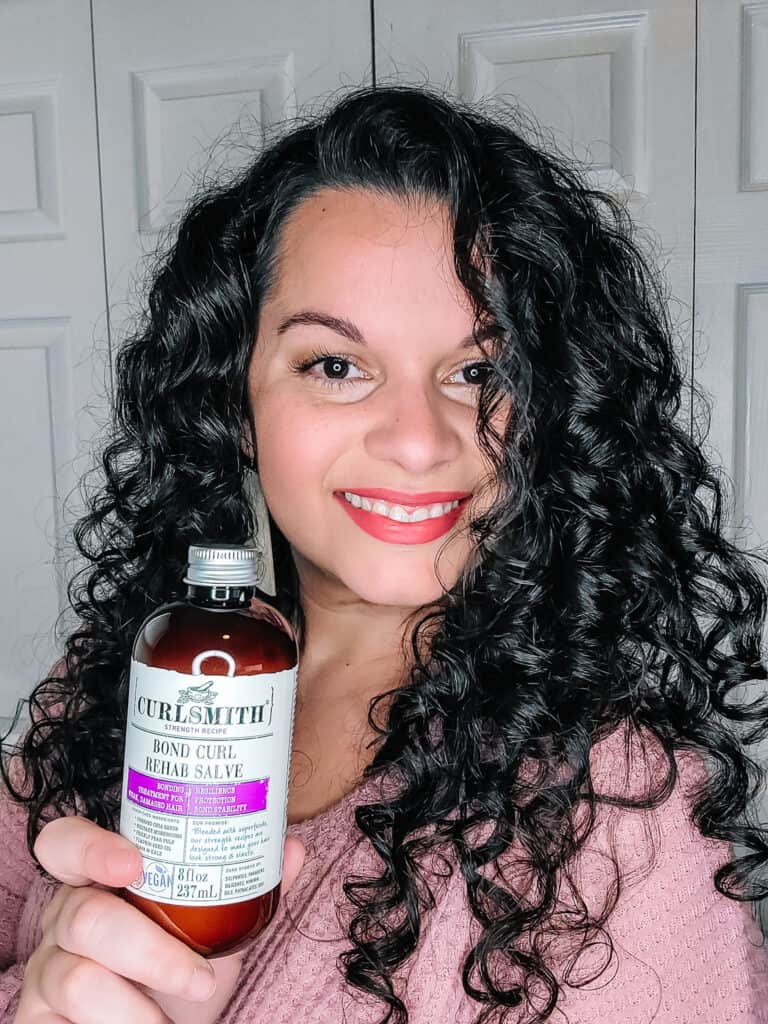
What is Protein Overload?
Protein overload happens when we try to make up for the lack of keratin by using products with protein in excess. We use hair products that promise to repair our hair, making it shiny and bouncy once again. Maybe you even go to the salon for a professional keratin treatment.
The key is knowing when enough is enough or knowing how much is too much.
Here’s the key – your hair needs a proper balance between water and protein. If your hair products have too much protein, your hair isn’t getting enough moisture to balance it out, and you get what people call protein overload. In other words, your hair never gets moisturized. Your hair needs the perfect balance between protein and moisture, especially when you have curly hair.
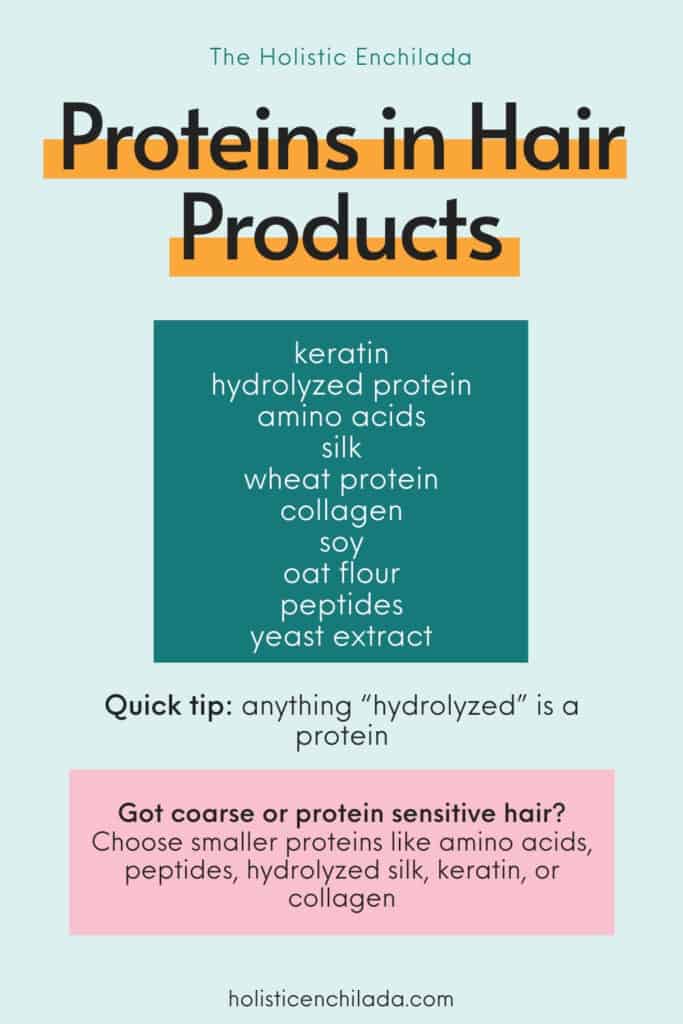
The Truth About Protein Overload
I have mentioned that protein overload is really just a lack of moisture. Scientifically, protein overload is not a thing. There is no excess of protein in your hair. It’s not possible since your hair is made up of protein.
The problem is that there isn’t enough moisture in your hair so it feels dry, stiff, and breaks easily. The protein moisture balance is off. Your hair can only break from a deficiency in moisture or a deficiency in protein. So while I say ‘protein overload’ in this article, know that it truly is a moisture deficiency. But since so many people call it protein overload and search for this term, I am using it throughout the article.
What Causes Protein Overload (Moisture Deficiency)?
Most of the time, protein overload occurs because you overdid it trying to ‘fix’ your hair. You realized your hair needed help so you did a protein treatment (or a few), but then you also used products with proteins in them without realizing it, and you didn’t balance it out with enough moisture.
Before you know it, you have protein overload. It’s not just ‘keratin’ products that contain protein, but any product that contains soy, silk, and amino acids are all forms of protein.
Other names to look for include hydrolyzed collagen, hydrolyzed wheat protein, and hydrolyzed rice protein. It’s important to read the ingredients in every product you put in your hair. If it contains protein, you need to keep track so you aren’t putting multiple protein products in your hair.
Remember that you shouldn’t be using protein treatments more often than once every 4-6 weeks. And that is for severely damaged hair. It’s less often for less damaged hair.
But you should be using products with protein, like your conditioner and stylers, on a regular basis. Because all hair needs protein! Some just need more than others.
Protein overload can sneak up on you – your favorite products may be doing the damage. It also depends on what type of hair you have.
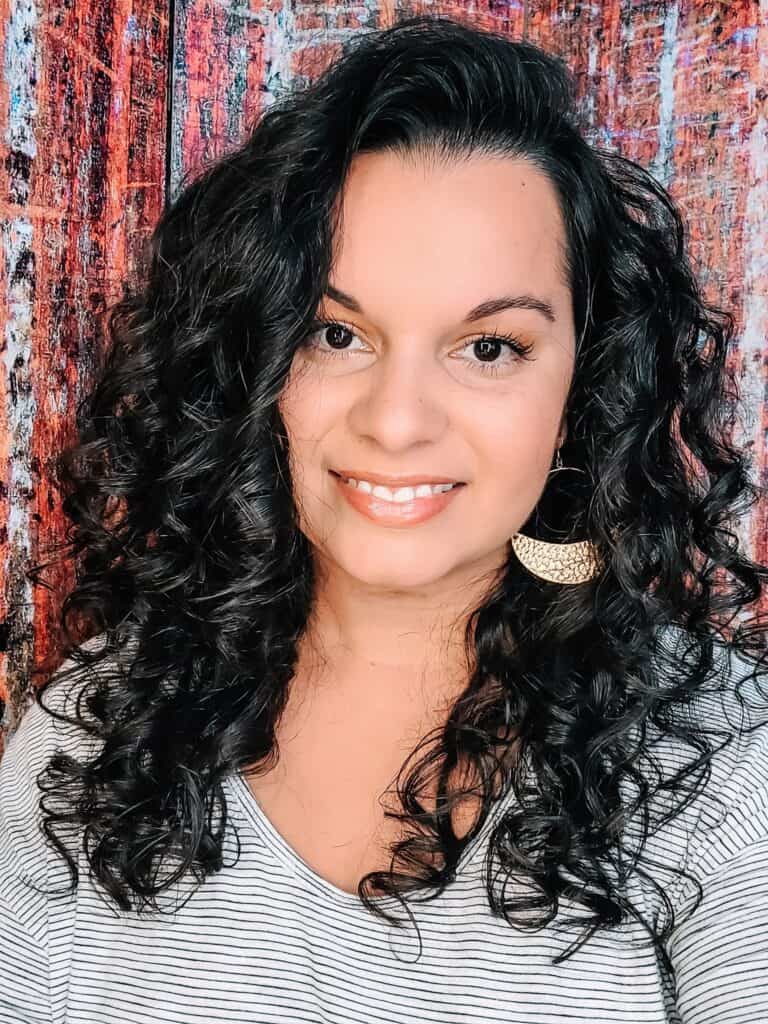
Hair Type and Protein – Is Each Hair Type Different?
Some hair types do better with certain types of proteins than others. This is based on the makeup of the hair and the condition of the cuticle.
- Low porosity hair – Those with low porosity hair should be cautious with protein treatments and choose products with smaller proteins. Your hair has a hard time absorbing moisture, giving you protein overload much more easily than other types.
- High porosity hair – Those with high porosity hair can benefit from protein treatments. Your hair will tolerate the treatments well, which will help your curls look healthier.
- Fine hair – Fine hair typically needs more protein which helps bulk up the hair and adds strength.
- Damaged hair – Protein treatments fill the gaps of the damaged cuticle, so the more damaged your hair is, the more protein it will need.
If you aren’t sure what type of porosity you have, read this article all about hair porosity.
Once you know your hair porosity, you can begin treating your hair the way it needs to look and feel healthy.
How can you Tell if you have Protein Overload (Moisture Deficiency)?
Seeing your hair stylist is the best way to tell if you have protein overload, but you’ll notice some of the signs below if you have it:
- Your hair doesn’t bounce back. If you pull on a strand of hair or a curl and it doesn’t bounce back, but instead breaks, you likely have protein overload. When your hair can’t get the moisture it needs, it becomes dry and breaks easily.
- Your hair feels dry. This isn’t your normal ‘dry,’ but more of like a straw feeling. If you run your hands through your hair and you feel like you’re walking through a field of hay, it could be due to lack of moisture.
- Your hair isn’t shiny. If you normally have a luscious shine, but you feel like your hair is dull and lifeless, it could be a lack of moisture.
- You’re losing clumps of hair. Everyone loses around 100 hairs a day, but it doesn’t feel like it. You shouldn’t normally have clumps of hair in your hands. If you notice a sudden change in how much hair you lose, it could be due to excessive protein in your routine.
- You can’t shake the frizz. No matter what products you try, your hair is frizzy even in perfect weather. This is due to the hair getting too dry (lack of moisture). The lack of moisture leaves you with nothing but frizz.
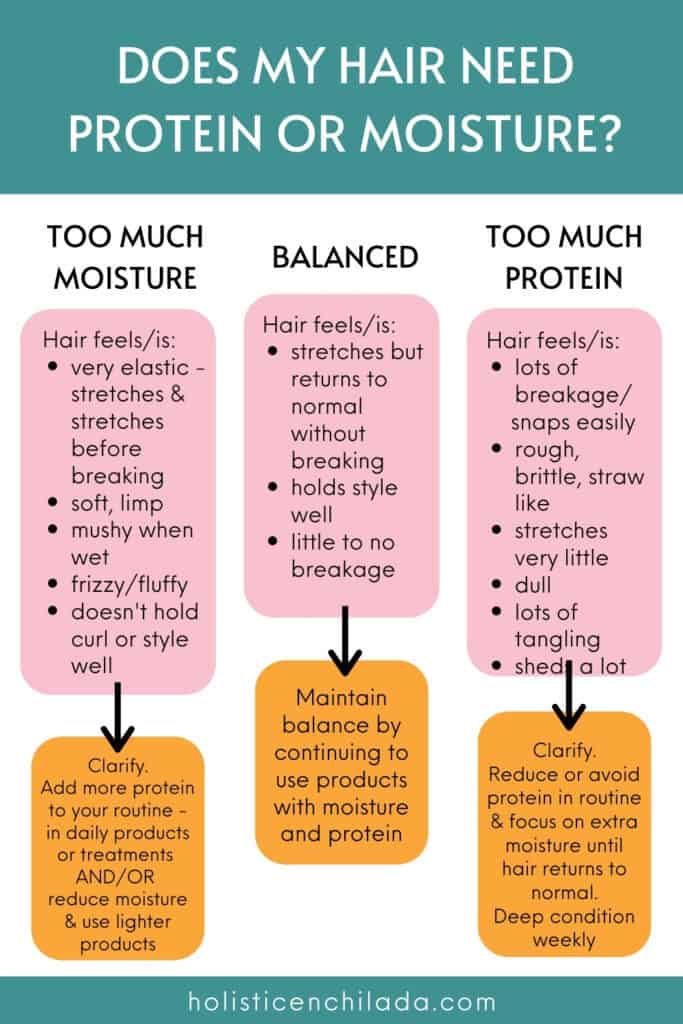
How to Fix Protein Overload (Moisture Deficiency)
Once you know you have protein overload, it’s time to learn how to fix it! The good news is you can do it yourself. It takes a little time and patience, but with the right steps, you can reverse the damage.
1. Lay off of Protein Treatments For A While
Using the ingredient list above, set aside any protein treatments and other products that have a lot of protein. Don’t just look for keratin-containing products, though. Look specifically for the ingredients mentioned above as protein can hide in your products without you realizing it.
If you have certain protein-containing products that you love, don’t toss them, but instead alternate what you use. Try to use non-protein products as often as possible and mix in your favorite protein products occasionally. Overuse is what causes protein overload.
2. Use a Clarifying Shampoo
Use a gentle clarifying shampoo to get rid of any buildup and allow your hair to absorb water and moisture. You may need to do this a few times to completely eliminate all buildup. Make sure you use a gentle clarifier though as you don’t want something to completely strip your hair of its natural oils.
3. Use a Deep Conditioner
Deep condition your hair more often until it starts to feel better. Again, make sure the product doesn’t have a lot of protein in it (one is ok) or you’ll defeat the purpose. A deep conditioner rich in Vitamin E will provide your hair with the hydration and repair it needs to fix brittle hair with split ends or excessive frizz.
4. Balance protein with moisture
Since we all need protein, and protein overload is really just a moisture deficiency, make sure you balance out protein treatments and protein products with enough moisture. Most people should be using a deep conditioner after a protein treatment, and most routines should have products that contain a little protein and enough moisture. What I’m saying is, your hair should feel soft after washing and styling. If not, add more moisture.
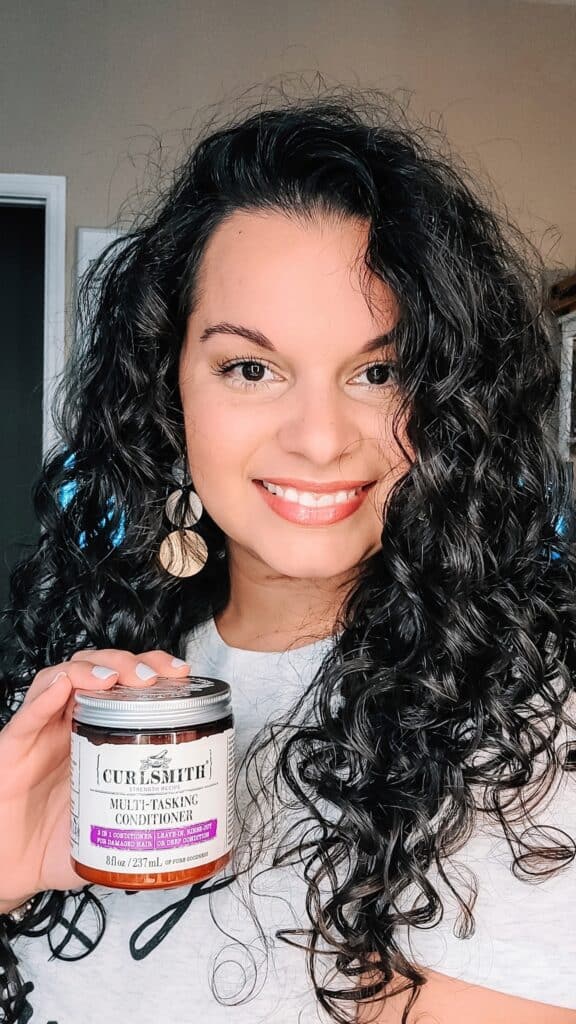
Choose the Right Products Moving Forward
Once you cleanse your hair of the protein overload, choose your products wisely! If you have a product with protein that you love, make that the only protein product you use. The others should be free from protein so you avoid the lack of moisture.
Focus on getting that moisture back into your hair so you can have the right protein moisture balance. Use leave ins and creams, and refresh with these moisturizing types of products.
If you notice the signs of protein overload again, follow the steps above, using a clarifying shampoo and deep conditioner to remove it, and give your hair another chance at beautiful curls.
Reading Ingredients Labels
Since reading the ingredients lists on products is so important, I want to share a few tips to help with this. Product ingredients are listed in order of concentration- the highest is first.
A protein rich product will be a product that has one or more proteins listed as one of the first 5 ingredients.
Proteins towards the middle or end of the list are not going to have as much of an effect since that means there isn’t much of that ingredient in the product.
Bottom Line
Use keratin or any other protein-containing product carefully. Don’t overdo it thinking you’re ‘really fixing your hair.’ Instead, you’re causing it more damage. Everything in moderation is important.
If you overdo it, don’t fear, you can reverse it. Use a good clarifying shampoo to strip your hair and start over. You’ll have a blank slate to start over again, giving your curls a new chance at a bouncy, fresh look!
Sources:
- The Protein Misconception Webinar by Dr. Susan Walker and Curl Specialist Krista Leavitt
- Protein 101 – Lots of Basic Information About Using Protein in Hair Products – The Science-y Hair Blog
- More About Protein – The Science-y Hair Blog
Please do me a favor and share this post to social media, as it helps me grow my audience and spread the word about our curly hair movement! And remember to subscribe to my YouTube Channel for more curly hair tips and product recommendations. Thanks!
Save Protein Overload – What Is It And How Do You Fix It? To Your Favorite Pinterest Board!
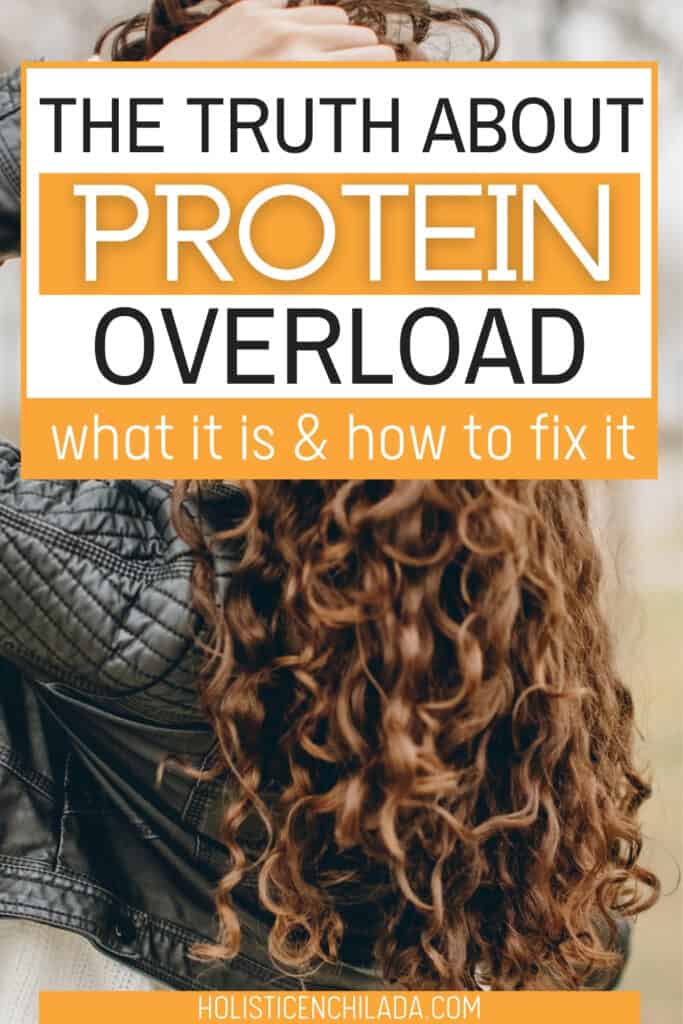

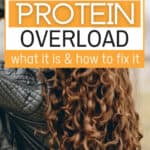
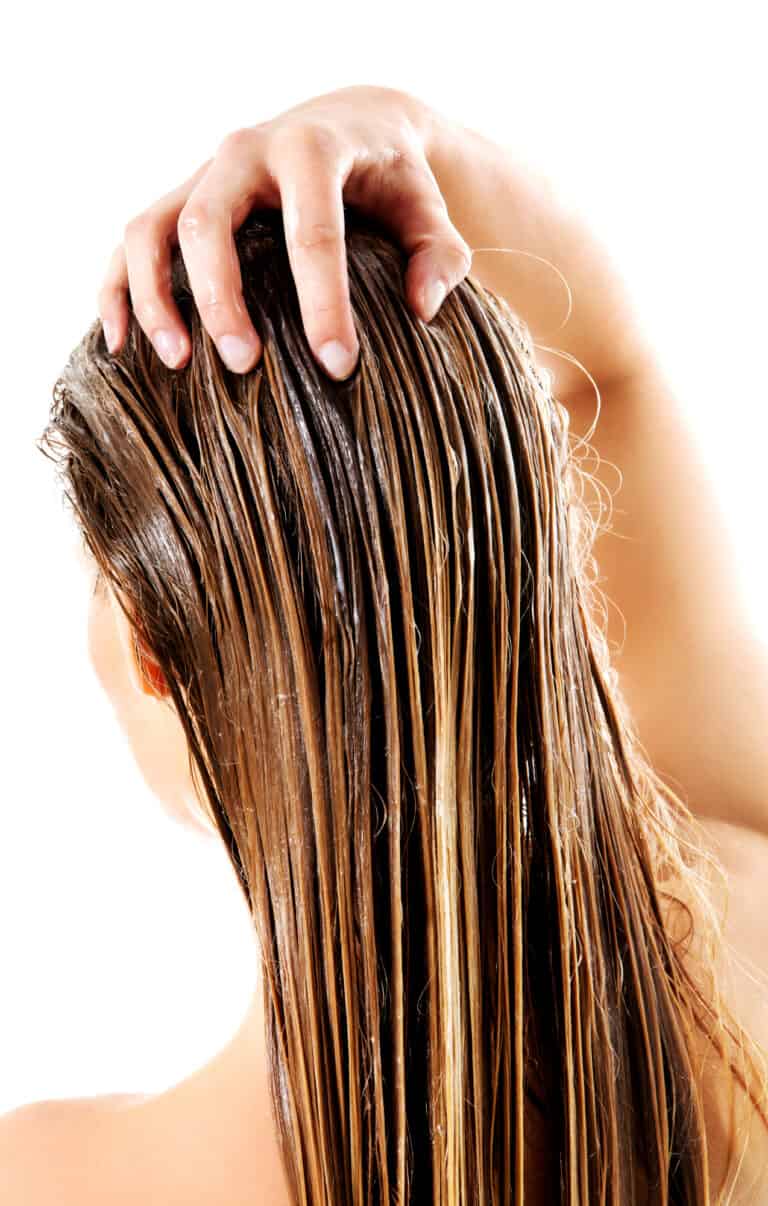

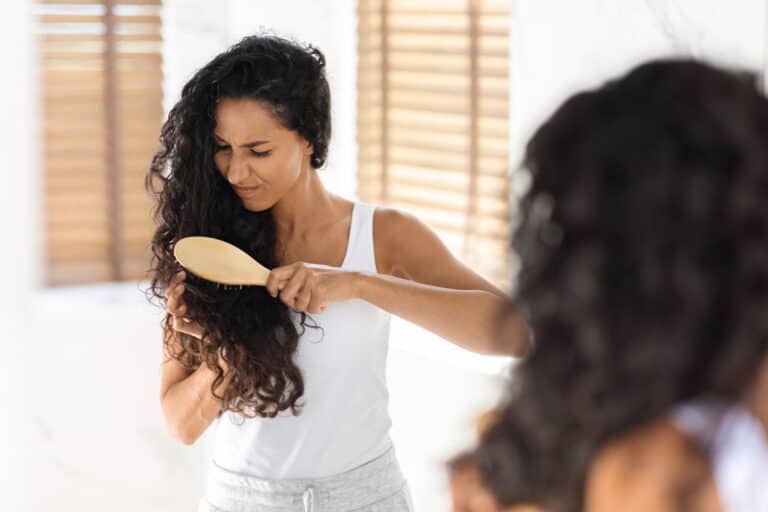
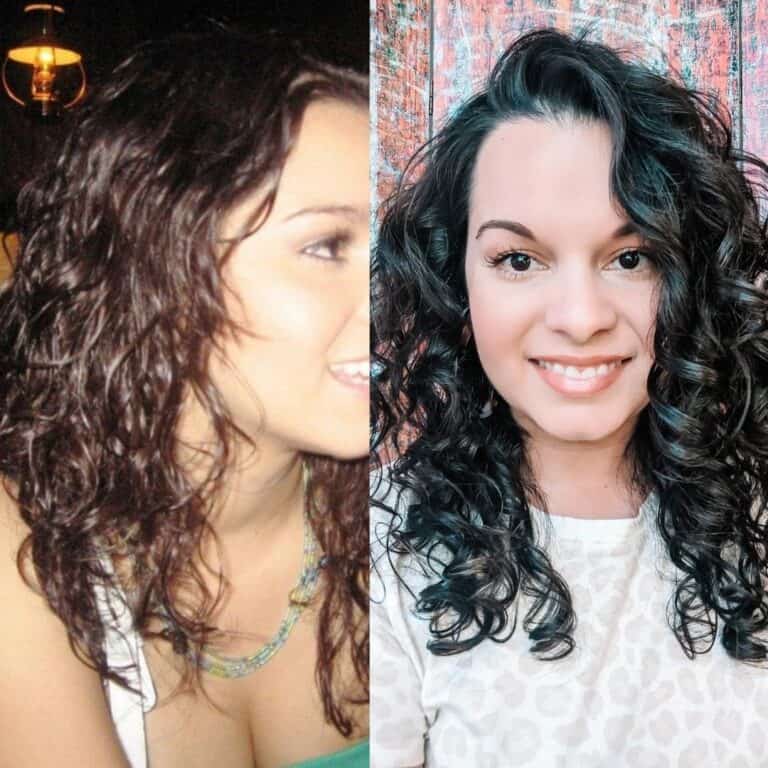
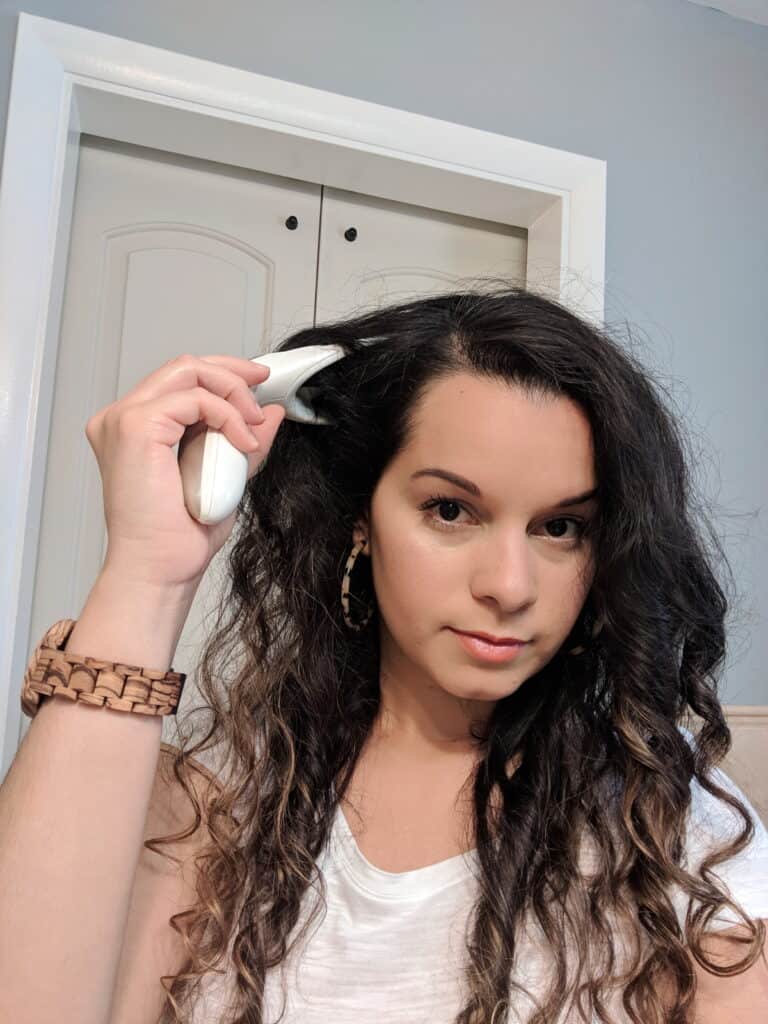
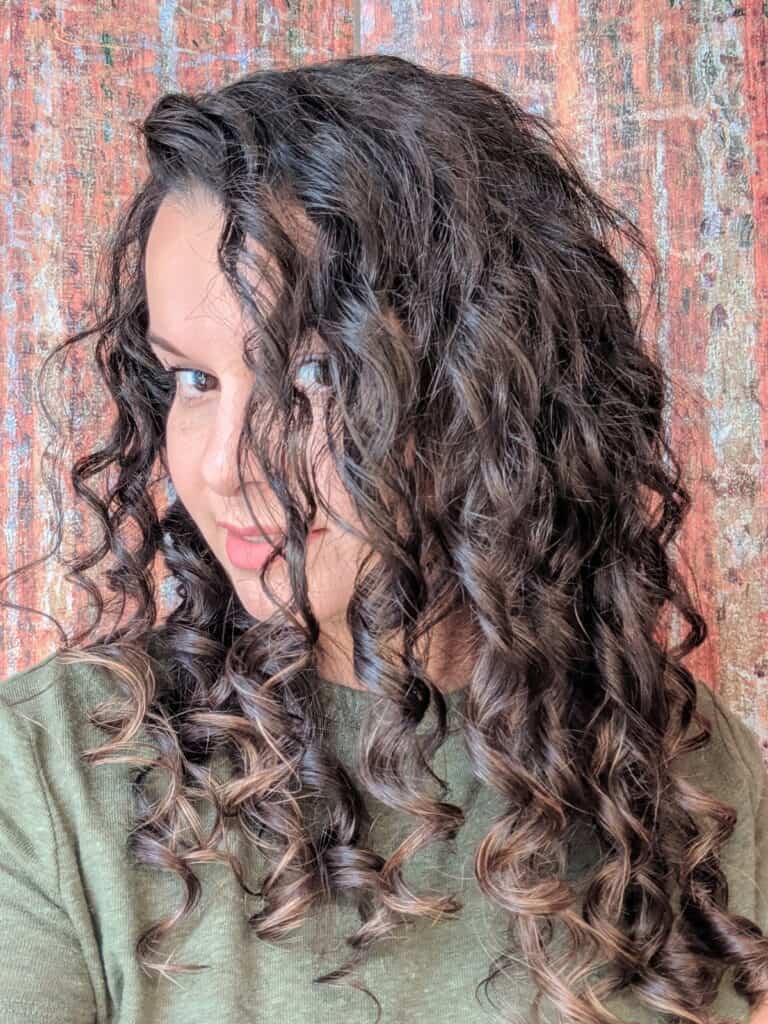
Hi!
I’ve been using innersense shampoo/conditioner and their I create lift foam for a while now.. all of which have protein. Over the last few months I’ve noticed that everytime I style my hair with the foam my hair feels extremely dry, my curls feel tangled after day 1, and they just look like crap! My hair also feels extremely dry and tangled when wet. When I first started using it my curls looked WONDERFUL, which is why I became addicted to it! Now, I’m pretty sure that I’ve got “protein overload” based on everything I’ve read 😔 Do you think I should stop using both the foam and shampoo/conditioner for a while, as they all have protein in them? Or continue shampoo/condish and hold the foam?
Or clarify every other wash and continue to use the foam? (I usually wash every 2-3 days) I currently use the mop top detox shampoo for clarifying.
I’m very simple when it comes to my hair routine. I usually find one styling product, diffuse, and call it good. So, feeling like I need to find something to alternate with that gives me volume and soft curls…struggle bus!
Let me know your thoughts as you have time!
It could be the weather change too. It’s hard to say but try setting it aside for a while and see how your hair feels. It may be the protein, or it may be another ingredient.
Hey,
September 2022- I got an Amino Acid hair treatment/relaxer in Jordan. (Amino Acid= a protein). I have been using cantu, loreal, pantene, philip kingsley and a big chop to help this however, the front of my hair is curly and the back of my hair pin straight. Recently, i bought a Keratin & Milk protein hair mask and started to use it daily thinking that it will work, but it looks like things have gotten worse as im putting more protein in my hair and less moisture. In this case, how do you suggest i rebuild the moisture and bonds/ what products? (I have been suffering with my hair for one year and a month)
Hopefully you’ve resolved this by now. But the answer is in the post. Add in moisturizing products and be patient. It will take time.
Hi do you have any product recommendations (like specific brands) to treat protein overload my hair has been SOOOOO brittle
Not really, just add more moisture. I did just publish an article with 8 protein free products.